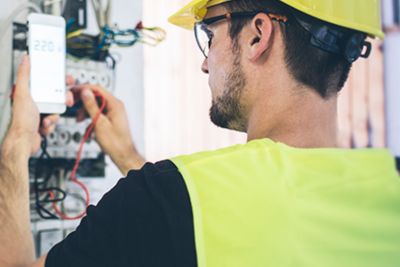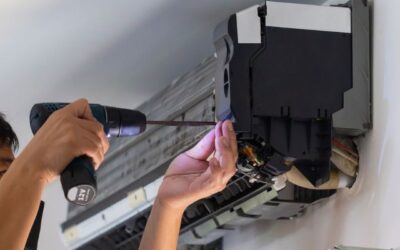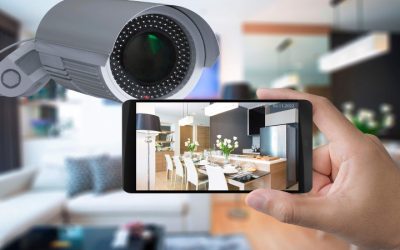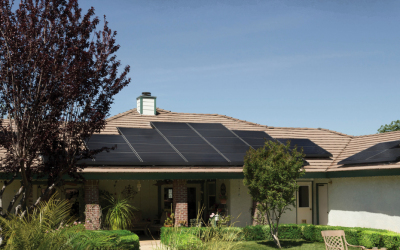Having a new baby at home is a genuinely thrilling experience, but it comes with a significant increase in responsibility. One of the most critical aspects of the home that needs to be babyproofed is everything electrical. Babies are inherently curious and will explore everything they possibly can, including your power points.
To keep your baby safe, it’s essential to prepare before they become mobile. Luckily, you can easily babyproof your home with a few simple adjustments. We’ll look at five effective ways to reduce the risk of any adverse events between your baby and the electrical components of your home.
1. Cover Your Outlets
One of the most common attractions for babies is an uncovered outlet. They love to stick tiny objects in the openings, which can lead to severe injury from electric shock. The best way to handle this risk is to cover the outlets. You have a couple of options, depending on your preference.
First, you can opt for special power points with spring-loaded covers that automatically pop over the receptacle as soon as you pull the plug out of it. This takes remembering to cover the outlet out of the equation, always keeping your baby safe from harm. This option is generally more expensive as the power sockets need to be changed by an electrician, whose labour costs more than a solution you can safely do yourself.
Alternatively, a quicker and cheaper option is to purchase plastic coverings for your power outlets. These work by effectively blocking little fingers from touching the socket itself, ensuring your baby cannot access them. However, you may find these inconvenient, as they require removal whenever you want to use the outlet. Both options have pros and cons, and it comes down to your preference and budget.
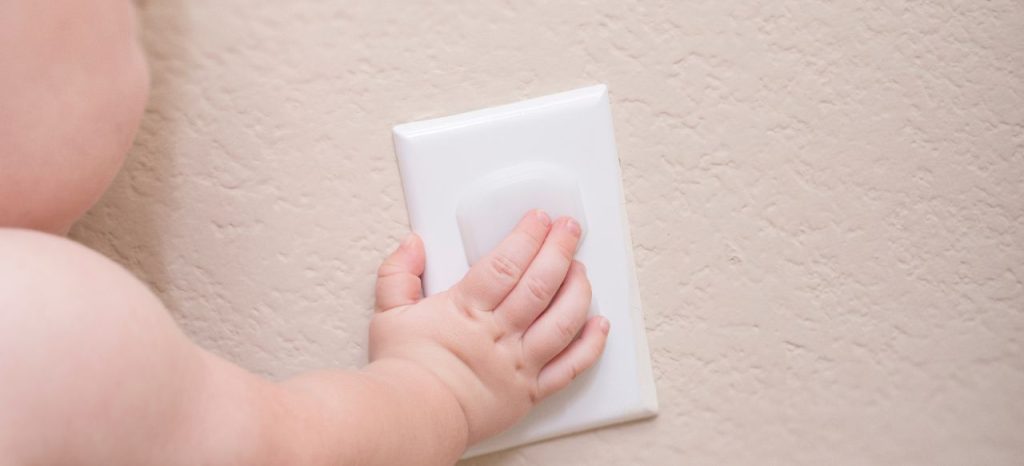
2. Only Use Childproof Power Banks
While not using power banks is the best practice when you have a little one in the home, the second best option is using one that is childproof. You’ll need to ensure there is no way for your baby to access the receptacles.
Some of these strips come with closeable outlets to prevent your baby from sticking their fingers or objects inside them. However, you’ll have to be vigilant in remembering to close them when not in use. In addition, you’ll need to monitor any activity around the powerstrip to prevent your baby from accidentally opening one of the outlets, or playing with the power cords.
The best solution is to hire your local electrician in Toowoomba to install more outlets, as they provide a much safer alternative than relying on power banks to meet your electrical needs.
3. Secure or Shorten Power Cords
Cords can be another danger when left unprotected. One of the first things a baby will do when they get their tiny hands on something is put it directly in their mouth. While cords have protective layers, a teething baby can still do significant damage, risking electrical shock.
In addition, dangling cords are attractive to these investigative little ones. One good tug and an appliance could come tumbling down, causing damage. So, it’s essential to keep all appliance cords out of reach.
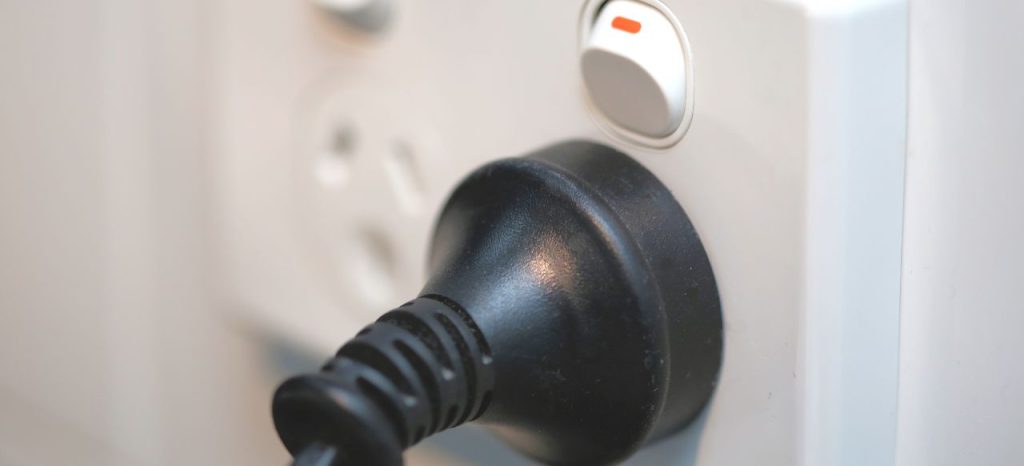
Consider relocating some of your furniture to conceal cords that are easily accessible. You can also use rugs to cover up cords across the floor. When you have cords you can’t conceal with either of these methods, you’ll need to consider other options.
First, you can bundle the cords together when you have multiple appliances that are close together. This will provide a neater, less cluttered appearance and prevent your baby from accessing them or tripping over them. However, it’s important to note you cannot use anything you find to tie them together–you’ll need a cord sleeve for the best protection.
Second, while this option isn’t very pretty, you can use gaffer’s tape to secure exposed cords to the floor when you don’t have a rug or furniture to hide them.
Third, you can use methods to shorten the cords. When you have long cords and cables, you can wrap them into a loop and secure them in this position with tape or a zip tie.
4. Keep Electronics Away From Water
While we all have the education that was drilled into us at school that electronics and water don’t mix, your baby will not have this sense. Keeping your electronic devices and components away from water is essential to prevent your baby’s curious mind from exploring what can happen when the two mix.
In addition, accidents can always happen where electrical components are dropped into water or a glass is overturned, spilling its contents onto an electrical device. The results can be highly hazardous to anyone around, or at best, costly to repair.
5. Repair Any Exposed Wiring
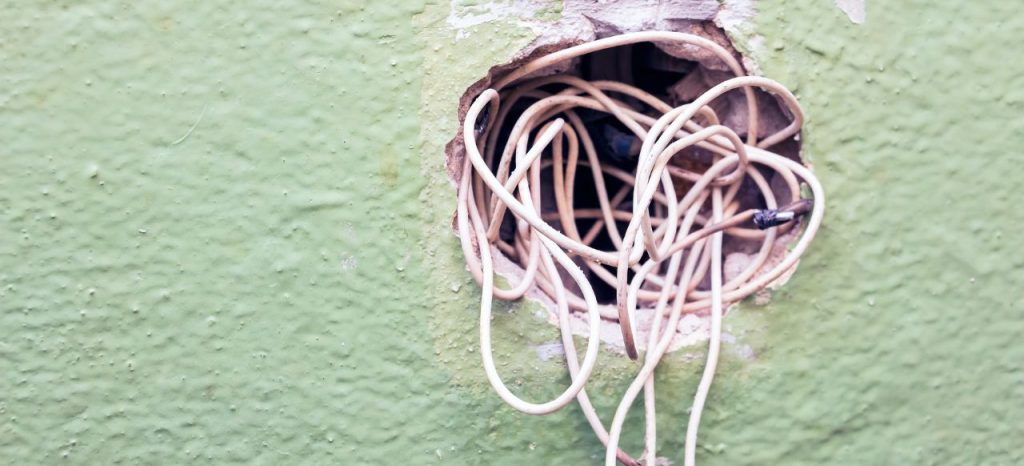
Exposed wiring is dangerous to anyone, especially babies. If you notice any areas with exposed wiring in your home, it’s imperative to call your local electrician in Toowoomba to complete repairs quickly. This will ensure your baby and the rest of your family are kept safe from all risks associated with unprotected wiring, including shock and fire.
6. Make sure your safety switch is up to scratch
Ensuring you have a safety switch that is in good working order can be the difference between a fatal accident and a non-event. Accidents do happen, you won’t be able to keep an eye on your little one all the time, especially as they get more mobile, therefore having a backup of a reliable and effective safety switch is or paramount importance. Most homes in Toowoomba already have safety switches that have no issue, if you are unsure about your home, contact an electrician to perform an electrical safety check for your peace of mind.
To sum it up, keep power points secure, preventing your little one from accessing them, keep electrical wires secure and out of reach as much as possible, reduce the usage of power banks by installing new power points or only use childproof power banks, and reduce the likely hood of any electrical components mixing with water, and finally, or perhaps most importantly, ensure your safety switch is in good working order. Although this article relates more to those with children who are crawling and walking, it is a good idea to get the house baby-proofed before your little one comes around, you’ll have plenty of other things to do when that time comes!

